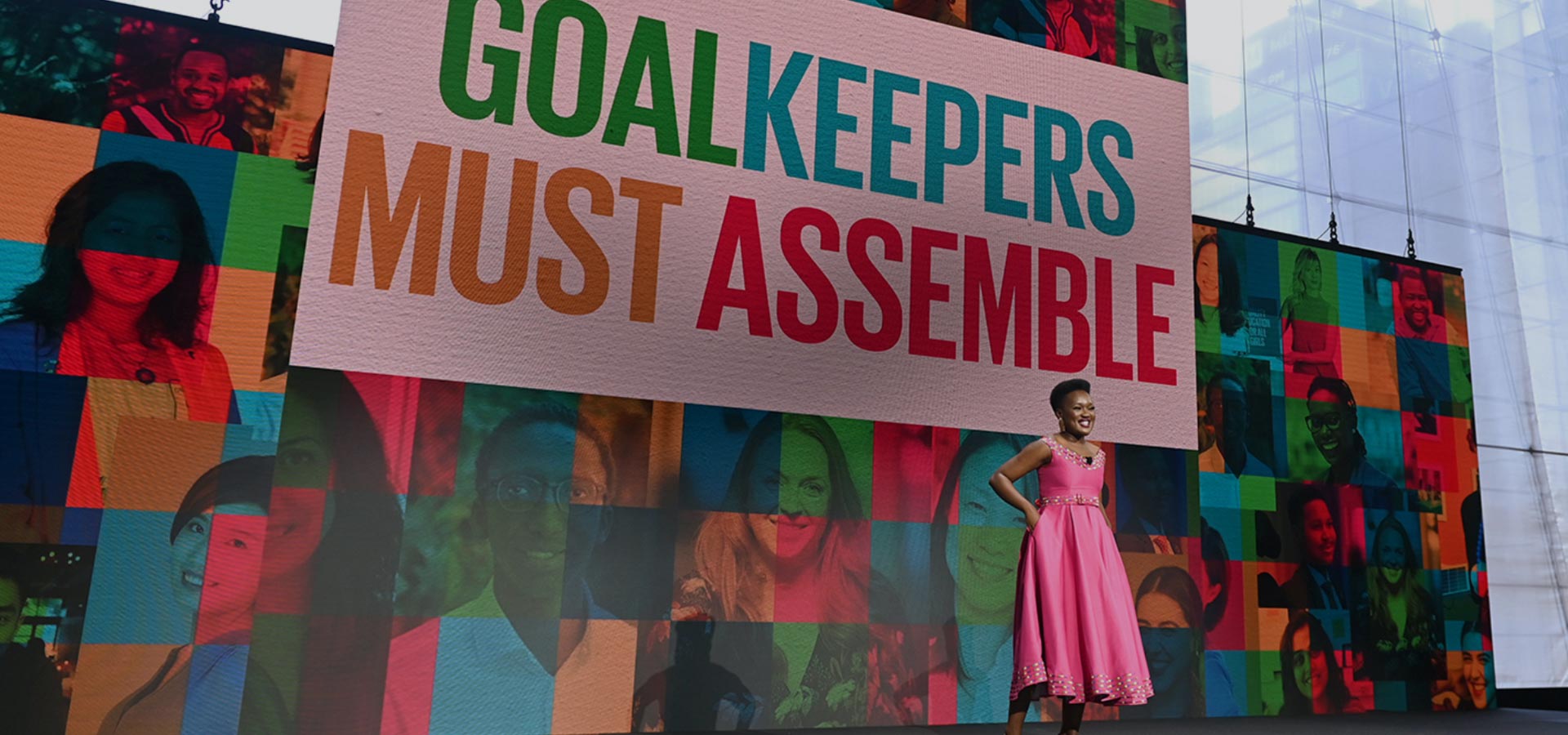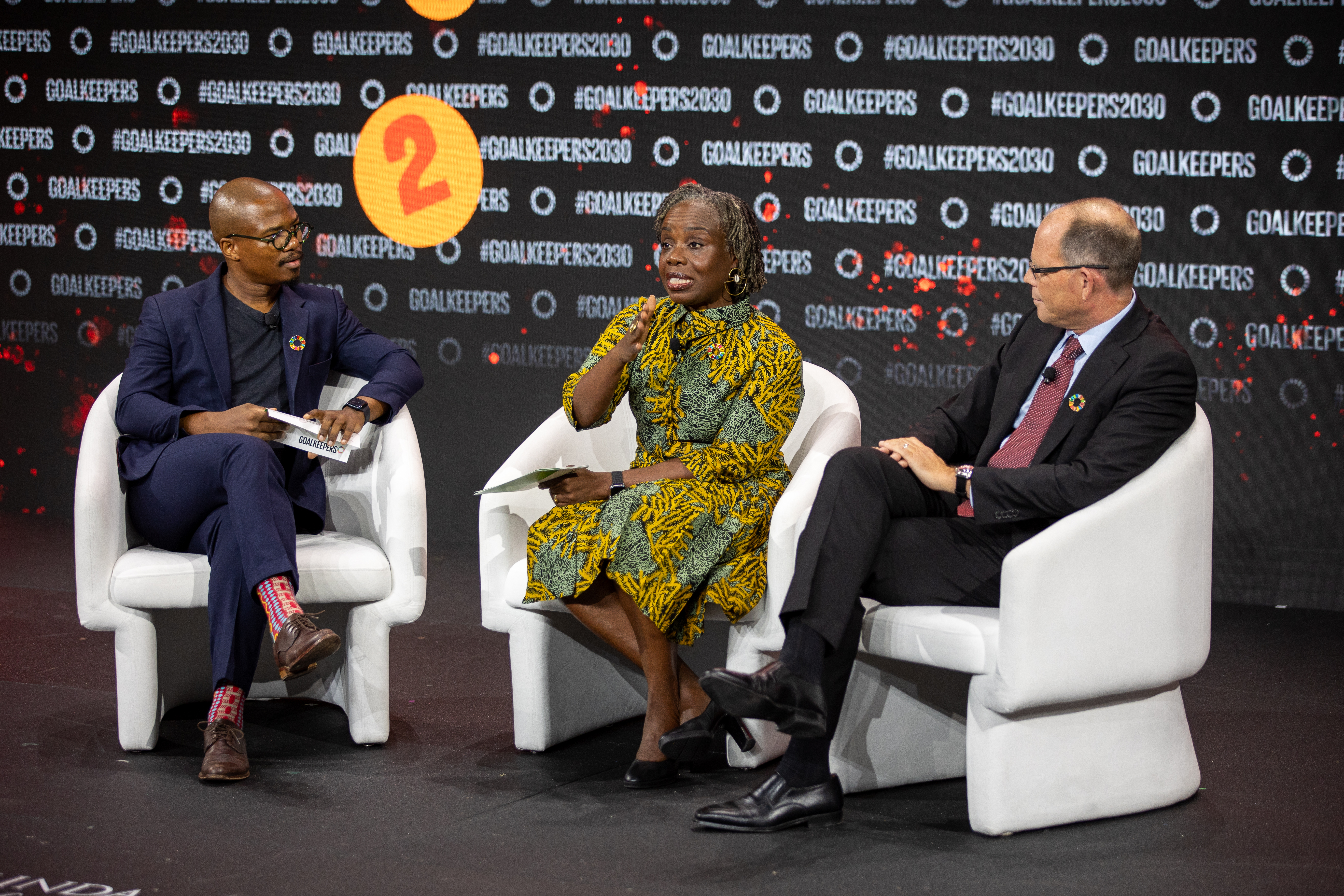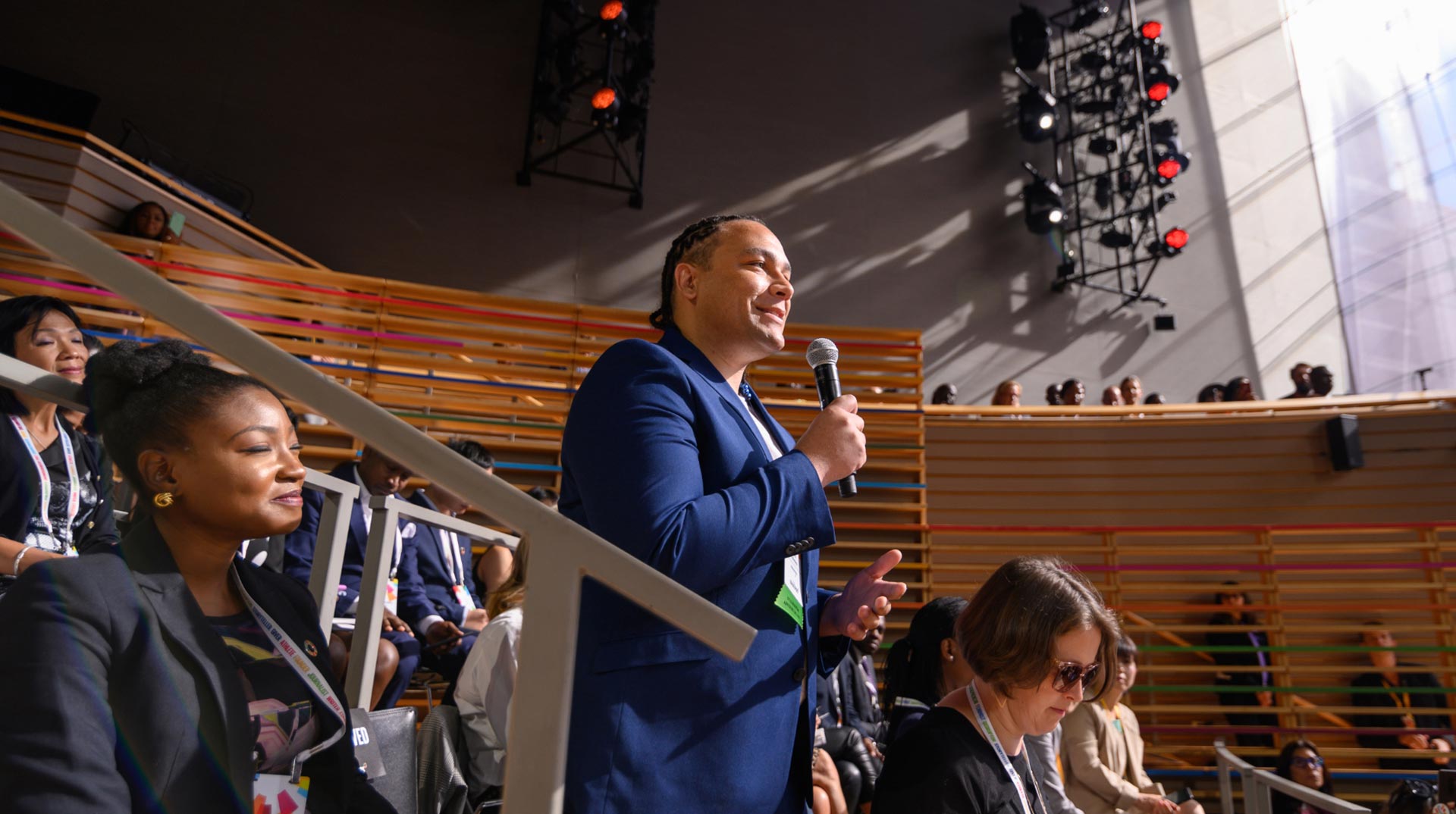
Goals for All
Progress is possible, but not inevitable. A better world by 2030 is well within our reach
— if we work together.
2024 Goalkeepers Event
The Goalkeepers event returned to New York City on September 23 as world leaders gathered for the 79th UN General Assembly.
This year, Goalkeepers highlighted solutions to keep people healthy and nourished in a rapidly warming world. Together, the world must work to ensure better nutrition for all so that everyone can reach their full potential.

Thinkers & Doers Leaders in Nutrition
2024 Goalkeepers Awards & Champions
Every year Goalkeepers celebrates individuals and organizations focused on making progress on the 2030 Global Goals. We want to highlight those that center the voices and needs of others.
Meet the progress makers

Are We Making Progress?
Every year we ask ourselves: Are we making progress? Now more than ever, we are committed to making sure that no one falls behind.
Our mission